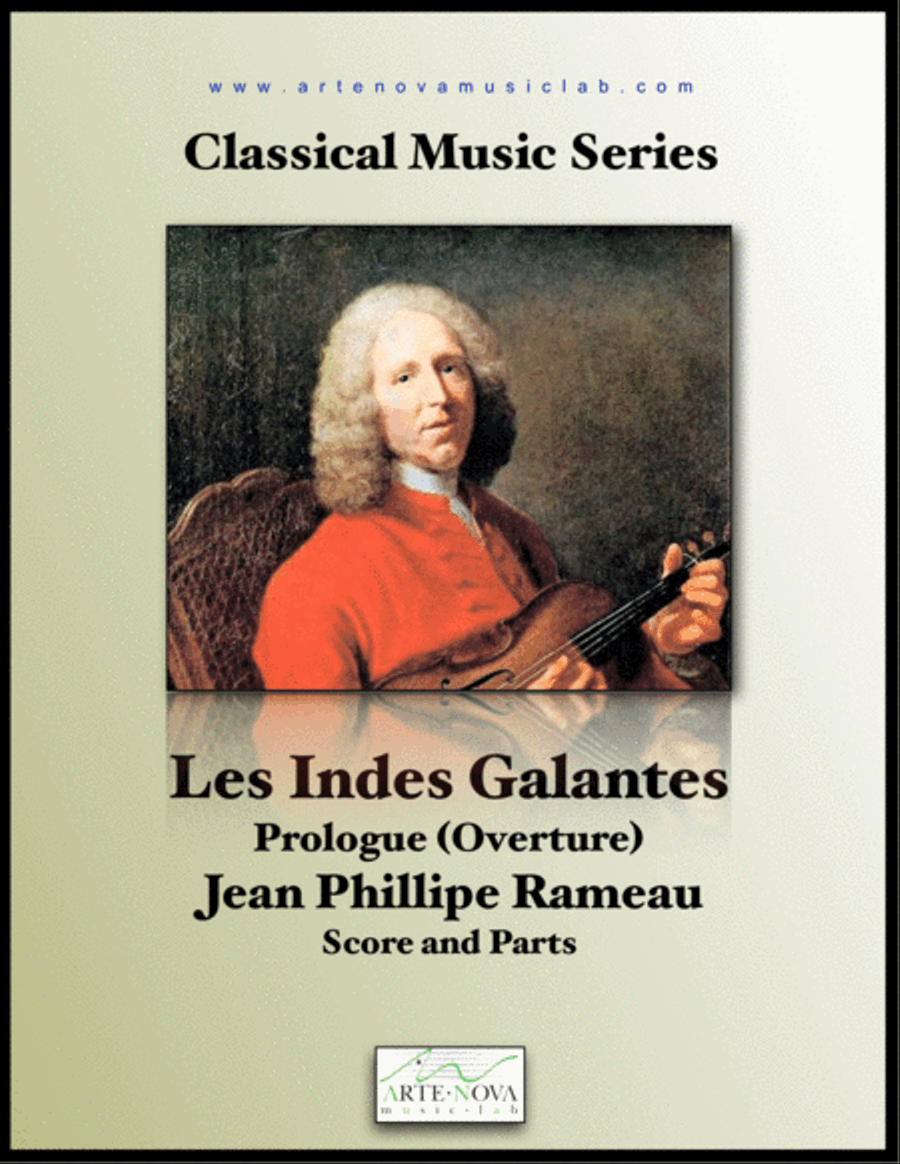Chamber Orchestra - Level 5 - Digital Download SKU: A0.742472 Composed by Jean Phillipe Rameau. Arranged by Arte Nova Music Lab. Baroque,Concert,Standards,World. Score and parts. 15 pages. Arte Nova Music Lab #4600759. Published by Arte Nova Music Lab (A0.742472). Les Indes galantes (French: The Amorous Indies) Opéra-ballet with a prologue and two entrées. Choreography: Louis Dupré. Music: Jean-Philippe Rameau. Libretto: Louis Fuzelier. Sets: Giovanni-Niccolò Servandoni. First performance: 23 August 1735, Théâtre de l'Académie de Musique, Paris. Principals: David Dumoulin, Louis Dupré, M. le Breton, M. Javellier, Marie Sallé. The premiere, including only the prologue and the first two of its four entrées (acts), was staged by the Académie Royale de Musique at itstheatre in the Palais-Royal in Paris on 23 August 1735, starring the leading singers of the Opéra, Marie Antier, Marie Pélissier, Mlle Errémans, Mlle Petitpas, Denis-François Tribou, Pierre Jélyotte, and Claude-Louis-Dominique Chassé de Chinais, and the dancers Marie Sallé and Louis Dupré. Michel Blondy provided the choreography. The ballet's Premier Menuet was used in the soundtrack of the 2006 film Marie Antoinette. Prologue: The palace of Hebe in the background and her gardens in the wings Hebe, goddess of youth, summons her followers to take part in a festival (Air: Vous, qui d'Hébé suivez les lois). Young French, Spanish, Italians and Poles rush to celebrate with a series of dances, including a musette. The ballet is interrupted by the noise of drums and trumpets. It is Bellona, goddess of war, who arrives on the stage accompanied by warriors bearing flags. Bellona calls on the youths to seek out military glory (Air and chorus: La Gloire vous appelle). Hebe prays to Cupid (L'Amour) to use his power to hold them back. Cupid descends on a cloud with his followers. He decides to abandon Europe in favour of the Indies, where love is more welcome. Taken from https://en.wikipedia.org/wiki/Les_Indes_galantes
